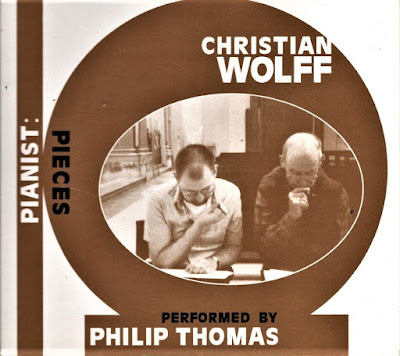This Hyperion Records recording of three dozen variations by Frederic Rzewski, who died this past June at 83 years, based on Chilean composer Sergio Ortega's 1969 piece, ¡El Pueblo Unido Jamás Será Vencido! is a fascinating excursion into what Rzewski wrote came from a realization that "there was no reason why the most difficult and complex formal structures" in so-called classical piano music "could not be expressed in a form which could be understood by a wide variety of listeners." Also motivated by what he referred to as "a crisis in theory, not only of music but in many different fields, including science and politics," Rzewski wanted, in "the absence of a general theory to explain phenomena and guide behavior," to develop his work so that "I explored form in which existing musical languages could be brought together."
Ortega's work was a merging of classical and popular forms, including the use of traditional Chilean folk instruments, in service of a left-wing movement under the Unidad Popular banner and Rzewski developed his version six years later. It contains a theme with 36 measures followed by that number of variations, with the latter divided into six groups, so that there are six cycles consisting of six stagees involving what the composer called "simple events," as well as rhythms, melodies, counterpoints, harmonies and combinations of those five.
As formal as the structure is, and there is a place or the performer to improvise after the sixth cycle, which performer Marc-André Hamelin does wonderfully, the untutored listener only has to appreciate the variety of melodic content, other musical material, and, especially, the dramatic differences in dynamics rather than understand the form. The last 16 minutes is comprised the last two of Rzewski's quartet of North American Ballads, which built on Bach's chorale preludes and American spiritual and blues influences and the results are fascinating and beautiful.

